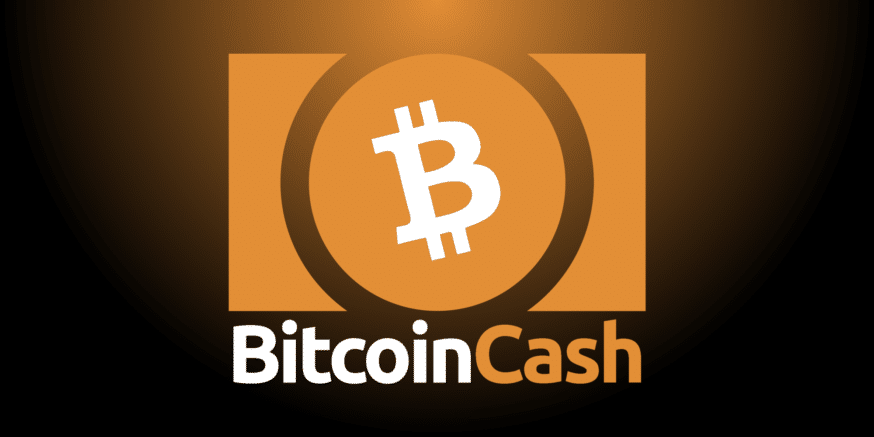Check out the Full Original Article on CoinCentral.com- https://coincentral.com/what-is-bitcoin-cash-vs-bitcoin/
Authored by Bennett Garner
What is Bitcoin Cash?
Bitcoin Cash arose as an alternative to Bitcoin, and it’s currently between the third and second most valuable cryptocurrency in the world by market cap, after Bitcoin and Ethereum. The founders of Bitcoin Cash created the alternative cryptocurrency on August 1, 2017 to combat the rise in transaction wait times and fees on the original Bitcoin network. Bitcoin Cash increases the number of transactions that can be processed per block.
In this “What is Bitcoin Cash” guide, we’ll go over the history of Bitcoin Cash, its current situation, and how it compares to the original Bitcoin.
Bitcoin Cash (BCH) – 770.57 USD (2.22%) – 0.10021496 BTC – RANK 4 – MARKET CAP $13.31 B – VOLUME (24H)
$486.41 M
Powered by CoinMarketCap
The Problem: Why Create Bitcoin Cash?
It’s no secret that Bitcoin has a scalability problem.
As the currency has grown in popularity, so have the number of transactions taking place on the network, and Bitcoin is currently pushing the limits of its software.
The main problem is Bitcoin imposes a hard limit on the size of a block, the place where transaction information gets stored. Currently, blocks on the Bitcoin blockchain are limited to 1 MB in size.
Why would Bitcoin limit the number of transactions the network can process?
Well, since Bitcoin uses a distributed ledger, every user on the network needs to download and keep a copy of the entire Bitcoin transaction history. Allowing unlimited transactions would mean that ledger would grow to an enormous size, and ordinary users wouldn’t have the computing storage or bandwidth to use the network.
If unlimited transactions were allowed, Bitcoin would become the domain of a centralized few organizations with enough processing power to handle tens of thousands of new transactions per second.
Since Bitcoin was created to avoid centralized institutions, this isn’t an attractive option.
The 1 MB limit on block size that’s currently in place means that the transaction ledger doesn’t grow too large too quickly. New users can easily download the transaction history and join Bitcoin. However,is block limit also means that there are more demands for transactions tha thn there is space in the block to fit them all.
As a result, Bitcoin miners are charging fees to have your transactions prioritized and included sooner. If you decide not to pay the fees, as of November 2017, your transaction takes on average a little over 2 hours to get confirmed.
These fees and confirmation times also seem contrary to Bitcoin’s mission of democratizing payments. With fiat transfers, you pay fees to a bank. For Bitcoin, paying fees to miners doesn’t seem much different, although the fees are variable and usually less than a bank transfer.
The founders and community of Bitcoin Cash believe that block size does need a limit, but the 1 MB limit is arbitrary. Instead, they proposed a system with a block size of 8MB, still reasonable for new users to download but large enough that the new system could accommodate many times the number of transactions per second as the original Bitcoin blockchain!
Hard Fork: Bitcoin Alternatives and a Divided Community
Before deciding to create a new currency, the folks behind Bitcoin Cash appealed to the original Bitcoin community for an increase in block size. Those in favor of the increase cited greater accessibility and room to grow for the burgeoning Bitcoin user base.
However, there were many opposed to the increase, including miners who would miss the fees for transactions, leading to a decrease in overall mining on the blockchain and lowered security as a result. Opponents also believed that such an increase in network capacity would still lead to storage, bandwidth, and computing requirements outside the reach of the ordinary user.
While the two camps did reach a small compromise in the form of BIP 91 and Segregated Witness, upgrades targeted at reducing the amount of information needed inside the block, the argument over increased block size dragged on for over two years.
Ultimately the two camps decided to part ways in the form of a hard fork on the Bitcoin network.
While technically almost identical, the two networks are not interchangeable.
The new Bitcoin Cash implemented replay protection and other measures to create a hard wall between the Bitcoin Cash fork and Bitcoin, meaning transactions could only be conducted within the fork and not across networks. The two currencies share a common history up until August 1, 2017, but thereafter they are completely separate.
As a result, Bitcoin Cash has a different exchange rate than Bitcoin, and not all wallets and exchanges supported Bitcoin Cash upon its launch. Still, by the end of the day on August 1, Bitcoin Cash was the third most valuable cryptocurrency in the world, in terms of market cap, and it continues to hold that position as of November 13, 2017 (although it briefly passed Ethereum as the 2nd largest cryptocurrency by market cap).
The Miners: Whose Opinion Really Matters
At the end of the day, discussions on forums and social media about the future of Bitcoin and Bitcoin Cash are less important to the project’s success than the decisions miners make about the new currency.
Since Bitcoin Cash is almost identical to Bitcoin, aside from block size, the two forks would now be competing for mining power.
Miners had a choice: take a chance on a new, possibly lucrative venture with greater risk or stick with the tried and tested model on the original Bitcoin mining network.

















